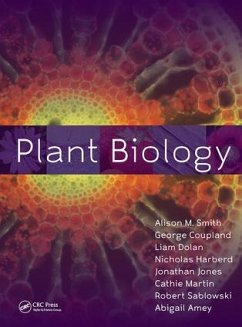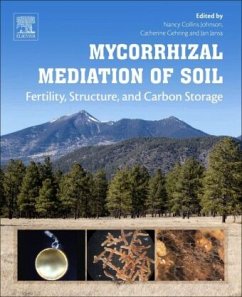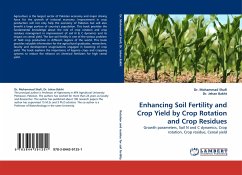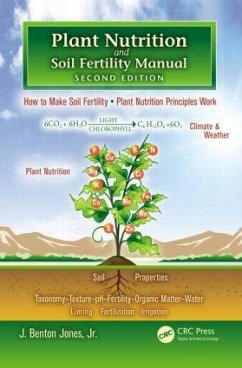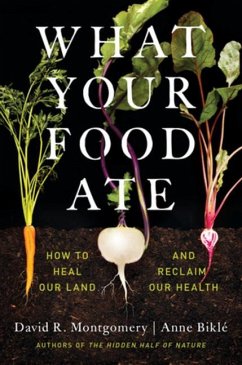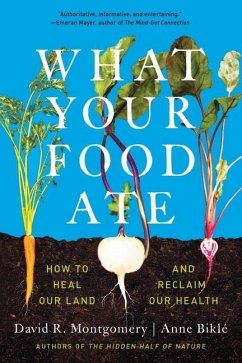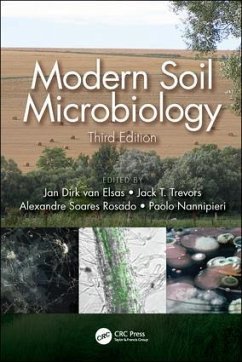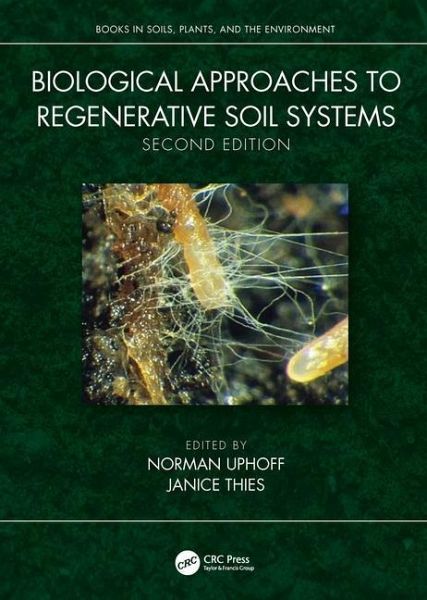
Biological Approaches to Regenerative Soil Systems
Versandkostenfrei!
Versandfertig in 6-10 Tagen
134,99 €
inkl. MwSt.
Weitere Ausgaben:

PAYBACK Punkte
67 °P sammeln!
Agriculture in the 21st century will need considerable modification to remain both productive and sustainable. Greater production is needed to meet the needs of our still-growing populations and to combat hunger and poverty. Declines in soil health and the pollution of water sources are making many of our production systems less tenable. These adverse trends are exacerbated more and more by the impacts of climate change.There are, fortunately, alternative methods available for agricultural practice that can countervail these constraints. Biological Approaches to Regenerative Soil Systems bring...
Agriculture in the 21st century will need considerable modification to remain both productive and sustainable. Greater production is needed to meet the needs of our still-growing populations and to combat hunger and poverty. Declines in soil health and the pollution of water sources are making many of our production systems less tenable. These adverse trends are exacerbated more and more by the impacts of climate change.
There are, fortunately, alternative methods available for agricultural practice that can countervail these constraints. Biological Approaches to Regenerative Soil Systems brings together the work of both researchers and practitioners to map out better approaches to contemporary agriculture that draw upon both old and new knowledge. It presents the science that underlies more biologically driven strategies as well as contemporary innovative experiences in diverse parts of the world. Both accepted research and these varied experiences encourage confidence that these approaches, not relying primarily on the introduction of new varieties and on exogenous inputs, can succeed.
This book updates and revises a preceding volume Biological Approaches to Sustainable Soil Systems published by CRC Press in 2006. So much has been learned and done on this subject in the past decade and a half that a second edition was warranted. For instance, the first edition was published, knowledge about plant-soil microbiomes, which are a frequent focus in this book, has mushroomed.
Because sustainability is a broad term and an end-state, the editors preferred to assemble expertise regarding regenerative agriculture, which is concerned with the means for achieving sustainability. The concept of regenerative soil systems, entities that are more complex and multifaceted than "soil" alone, also incorporates a concern with having more resilient agricultural systems, ones that are better able to cope with the multiple stresses of climate change that are foreseen for the decades ahead.
The book's chapters representing a wide range of disciplines were contributed by 84 scientists and practitioners from 20 countries. Although they come from persons with in-depth knowledge of their respective fields, the chapters are written to be accessible to readers who are not trained in the specialized subjects. Taken together, the chapters provide students, researchers, practitioners, planners, and policy makers with a comprehensive understanding of both the science and the steps needed to regenerate and sustain soil systems around the world for the long-term benefit of humankind and the environment.
There are, fortunately, alternative methods available for agricultural practice that can countervail these constraints. Biological Approaches to Regenerative Soil Systems brings together the work of both researchers and practitioners to map out better approaches to contemporary agriculture that draw upon both old and new knowledge. It presents the science that underlies more biologically driven strategies as well as contemporary innovative experiences in diverse parts of the world. Both accepted research and these varied experiences encourage confidence that these approaches, not relying primarily on the introduction of new varieties and on exogenous inputs, can succeed.
This book updates and revises a preceding volume Biological Approaches to Sustainable Soil Systems published by CRC Press in 2006. So much has been learned and done on this subject in the past decade and a half that a second edition was warranted. For instance, the first edition was published, knowledge about plant-soil microbiomes, which are a frequent focus in this book, has mushroomed.
Because sustainability is a broad term and an end-state, the editors preferred to assemble expertise regarding regenerative agriculture, which is concerned with the means for achieving sustainability. The concept of regenerative soil systems, entities that are more complex and multifaceted than "soil" alone, also incorporates a concern with having more resilient agricultural systems, ones that are better able to cope with the multiple stresses of climate change that are foreseen for the decades ahead.
The book's chapters representing a wide range of disciplines were contributed by 84 scientists and practitioners from 20 countries. Although they come from persons with in-depth knowledge of their respective fields, the chapters are written to be accessible to readers who are not trained in the specialized subjects. Taken together, the chapters provide students, researchers, practitioners, planners, and policy makers with a comprehensive understanding of both the science and the steps needed to regenerate and sustain soil systems around the world for the long-term benefit of humankind and the environment.





